In today’s globalized economy, efficient and reliable logistics solutions are crucial for businesses looking to import goods into Jamaica. One of the most convenient and comprehensive shipping solutions available is door-to-door shipping. This method simplifies the import process by handling everything from the supplier’s warehouse to the final destination, making it an attractive option for importers looking to save time, reduce stress, and ensure their shipments arrive safely and on time. This article will explore the ins and outs of door-to-door shipping to Jamaica, including its definition, key terms like DDU and DDP, benefits, costs, and more.
Related Article : Shipping From China to Jamaica

What is Door to Door Shipping?
Door-to-door shipping is a logistics service where the freight forwarder or shipping company handles the entire transportation process from the supplier’s warehouse to the buyer’s specified destination. This service includes pick-up, transportation, customs clearance, and delivery to the final destination.
In door-to-door shipping, the logistics provider takes full responsibility for the entire journey of the shipment. This means the importer does not need to worry about coordinating multiple transport legs, dealing with customs, or arranging for final delivery. This all-inclusive service is ideal for businesses that want to streamline their logistics and focus on their core operations.

Comparison with Other Types of Shipping Methods
- Port-to-Port Shipping: In this method, the shipment is transported from the port of origin to the port of destination. The importer is responsible for arranging transport to and from the ports.
- Door-to-Port Shipping: Here, the logistics provider picks up the goods from the supplier’s location and delivers them to the port of destination. The importer must handle customs clearance and final delivery.
- Port-to-Door Shipping: In this scenario, the importer arranges for the shipment to be transported from the port of origin, and the logistics provider handles the transport from the destination port to the buyer’s location.
Door-to-door shipping stands out because it offers a seamless, hassle-free experience, combining the benefits of multiple shipping methods into one integrated service.
DDU and DDP: Key Terms Explained
Understanding the terms DDU (Delivered Duty Unpaid) and DDP (Delivered Duty Paid) is essential for importers considering door-to-door shipping services.
DDU (Delivered Duty Unpaid)
DDU means that the seller is responsible for delivering the goods to the destination country, but the buyer is responsible for paying any import duties, taxes, and customs clearance fees. The seller covers all transportation costs up to the destination point, excluding the import duties and taxes.
Responsibilities of the Seller and Buyer
- Seller:
- Arrange and pay for transportation to the destination country.
- Provide all necessary shipping and export documentation.
- Ensure the goods are appropriately packaged for international shipping.
- Buyer:
- Pay for import duties, taxes, and customs clearance fees.
- Arrange and pay for any additional transportation from the customs point to the final destination, if necessary.
- Handle all import-related documentation and procedures.
DDP (Delivered Duty Paid)
DDP means that the seller is responsible for delivering the goods to the buyer’s specified location, including paying all import duties, taxes, and customs clearance fees. The seller covers all transportation costs and ensures that the shipment is delivered without any additional charges to the buyer.
Responsibilities of the Seller and Buyer
- Seller:
- Arrange and pay for transportation to the buyer’s specified location.
- Pay all import duties, taxes, and customs clearance fees.
- Provide all necessary shipping, export, and import documentation.
- Ensure the goods are appropriately packaged and delivered to the final destination.
- Buyer:
- Receive the goods at the specified location.
- No additional costs or responsibilities regarding import duties, taxes, or customs clearance.
Comparison Table between DDU and DDP
| Feature | DDU (Delivered Duty Unpaid) | DDP (Delivered Duty Paid) |
|---|---|---|
| Seller’s Responsibility | Shipment until arrival at destination country | Shipment including payment of duties and taxes |
| Buyer’s Responsibility | Payment of import duties, taxes, and clearance | Receiving the goods, no additional payments |
| Risk | Higher risk for the buyer | Lower risk for the buyer |
| Cost | Potentially lower for seller | Potentially higher for seller |
Benefits of Door to Door Shipping to Jamaica
Opting for door-to-door shipping to Jamaica offers numerous advantages that can significantly streamline the import process for businesses.
Convenience and All-Inclusive Service
One of the primary benefits of door-to-door shipping is its convenience. This service encompasses every aspect of the shipping process, from pick-up at the supplier’s warehouse to delivery at the importer’s specified location. This all-inclusive approach means importers don’t need to coordinate multiple service providers or manage different stages of the shipping process. Everything is handled by a single logistics provider, ensuring a seamless and hassle-free experience.
Reduced Risks and Responsibilities for the Importer
With door-to-door shipping, the logistics provider takes on the majority of the responsibilities and risks involved in the shipping process. This includes handling customs clearance, documentation, and any potential issues that may arise during transit. For importers, this means reduced exposure to risks such as delays, compliance issues, and unexpected costs. By entrusting these responsibilities to an experienced logistics provider, businesses can focus on their core operations without worrying about the complexities of international shipping.
Time and Cost Efficiency
Time efficiency is another significant advantage of door-to-door shipping. By leveraging the expertise of a logistics provider, importers can ensure their goods are transported in the most efficient manner possible. This can result in faster transit times and timely delivery, which is crucial for maintaining supply chain schedules and meeting customer demands.
Cost efficiency is equally important. Although door-to-door shipping may appear more expensive upfront, it often proves to be more cost-effective in the long run. This is because it eliminates the need for multiple service providers and reduces the risk of incurring additional costs due to delays or compliance issues. Additionally, logistics providers often have established relationships with carriers and customs authorities, allowing them to negotiate better rates and streamline the clearance process.
Dantful International Logistics Services:
- Dantful Ocean Freight Services
- Air Freight From China
- Amazon FBA Freight Forwarding
- WAREHOUSE Services
- One-Stop Customs Clearance Solution
- Cargo Insurance Services in China
- DDP Shipping Services By Dantful Logistics
- Out of Gauge Cargo Transportation Shipping Services
Estimated Shipping Time
Understanding the estimated shipping times is vital for planning and managing supply chains effectively.
Typical Transit Times from Major Shipping Origins
- China to Jamaica: Typically, shipping from China to Jamaica takes around 25-40 days via ocean freight and 5-10 days via air freight.
- USA to Jamaica: Shipping from the USA to Jamaica generally takes about 5-10 days via ocean freight and 1-3 days via air freight.
Factors That Can Affect Shipping Times
Several factors can influence the actual transit times of shipments:
- Shipping Method: Air freight is significantly faster than ocean freight, but it is also more expensive. Choosing the appropriate method based on urgency and budget can impact delivery times.
- Customs Clearance: The efficiency of customs clearance processes at both the origin and destination ports can affect overall shipping times. Delays in documentation or inspections can extend transit times.
- Seasonal Variations: Peak shipping seasons, such as the holiday period, can lead to congestion at ports and longer transit times.
- Weather Conditions: Adverse weather conditions can disrupt shipping schedules, particularly for ocean freight.
Cost of Door to Door Shipping to Jamaica
Understanding the cost components and factors influencing the costs of door-to-door shipping is crucial for budget planning.
Breakdown of Potential Costs Involved
- Freight Costs: This includes the cost of transporting goods from the point of origin to the destination. Freight costs vary based on the shipping method (air or ocean), shipment size, and weight.
- Customs Duties and Taxes: Import duties, taxes, and fees imposed by Jamaican customs authorities must be accounted for.
- Insurance Costs: Insurance is recommended to cover potential losses or damages during transit. The cost of insurance depends on the value and nature of the goods being shipped.
- Handling and Documentation Fees: Fees for handling, packaging, and required documentation (e.g., bills of lading, certificates of origin).
Factors Influencing the Cost
- Shipment Size and Weight: Larger and heavier shipments incur higher transportation costs.
- Shipping Method: Air freight is more expensive than ocean freight, but it offers faster delivery.
- Distance and Route: Longer distances and less direct routes can increase transportation costs.
- Customs Charges: The type of goods being imported and their value can influence the amount of import duties and taxes.
Cost Comparison Table: Air vs. Ocean Freight
| Cost Component | Air Freight | Ocean Freight |
|---|---|---|
| Transit Time | 5-10 days (China to Jamaica) | 25-40 days (China to Jamaica) |
| 1-3 days (USA to Jamaica) | 5-10 days (USA to Jamaica) | |
| Cost | Higher | Lower |
| Weight Restrictions | Strict | Flexible |
| Volume Restrictions | Limited space available | Ample space available |
Door to Door Shipping Process
Understanding the door-to-door shipping process is crucial for importers to ensure a smooth and hassle-free experience. Here’s a comprehensive step-by-step guide:
Step-by-Step Guide on the Shipping Process
- Initial Consultation and Quotation
- The importer contacts a logistics provider, such as Dantful International Logistics, to discuss shipping needs.
- The logistics provider assesses the requirements and provides a detailed quotation, including costs and estimated transit times.
- Booking and Confirmation
- Once the quotation is accepted, the logistics provider books the shipment and confirms all details with the importer and the supplier.
- Pick-Up and Packaging
- The logistics provider arranges for the goods to be picked up from the supplier’s warehouse.
- Proper packaging is ensured to protect the goods during transit.
- Export Documentation and Customs Clearance (Origin Country)
- The logistics provider prepares and submits all necessary export documentation (e.g., commercial invoice, packing list, bill of lading).
- Customs clearance procedures are completed in the origin country.
- Transportation to Destination Country
- The goods are transported via the chosen shipping method (air or ocean freight) to the destination country.
- Real-time tracking is provided to keep the importer informed of the shipment’s status.
- Import Documentation and Customs Clearance (Destination Country)
- Upon arrival, the logistics provider handles the import documentation and submits it to the Jamaican customs authorities.
- Customs duties, taxes, and clearance fees are paid (either by the seller in DDP terms or the buyer in DDU terms).
- Final Delivery
- Once customs clearance is completed, the logistics provider arranges for the goods to be delivered to the importer’s specified location.
- The importer receives the goods and confirms delivery.
Documentation Required
Proper documentation is essential for smooth customs clearance and compliance with regulations. The following documents are typically required:
- Commercial Invoice: Details the transaction between the seller and the buyer, including the value of the goods.
- Packing List: Lists the contents, dimensions, and weight of each package.
- Bill of Lading: A legal document issued by the carrier to acknowledge receipt of cargo for shipment.
- Certificate of Origin: Certifies the country where the goods were manufactured.
- Import License (if applicable): Required for certain regulated goods.
- Insurance Certificate: Provides proof of insurance coverage for the shipment.
Customs Clearance Procedures
Customs clearance is a critical step in the door-to-door shipping process. Here’s how it typically works:
- Submission of Documentation: The logistics provider submits all necessary documentation to the Jamaican customs authorities.
- Inspection and Verification: Customs officials inspect the goods and verify the documentation. This may include physical inspections.
- Payment of Duties and Taxes: Import duties and taxes are assessed based on the type and value of the goods. Payment is made either by the seller (in DDP terms) or the buyer (in DDU terms).
- Release of Goods: Once all requirements are met and payments are made, the goods are released for final delivery.
Read More:
- Shipping From China to the United States
- Shipping From China TO CANADA
- Shipping From China To Netherlands
- Shipping From China To UNITED KINGDOM
- Shipping From China To ALGERIA
- Shipping from China to UAE
- Shipping from China to Saudi Arabia
FAQs
To assist importers, here are some common questions and detailed answers about door-to-door shipping to Jamaica:
Q1: What are the main benefits of door-to-door shipping?
- A1: The main benefits include convenience, reduced risks and responsibilities for the importer, and time and cost efficiency. This service covers all aspects of shipping, from pick-up to final delivery, ensuring a seamless experience.
Q2: How long does door-to-door shipping take from China to Jamaica?
- A2: Typically, shipping from China to Jamaica takes around 25-40 days via ocean freight and 5-10 days via air freight. Factors such as customs clearance and weather conditions can affect transit times.
Q3: What costs are involved in door-to-door shipping?
- A3: Costs include freight charges, customs duties and taxes, insurance, and handling and documentation fees. The total cost depends on factors such as shipment size, weight, and shipping method.
Q4: What documentation is required for customs clearance?
- A4: Key documents include the commercial invoice, packing list, bill of lading, certificate of origin, import license (if applicable), and insurance certificate. Proper documentation ensures smooth customs clearance.
Q5: What is the difference between DDU and DDP?
- A5: DDU (Delivered Duty Unpaid) means the seller delivers the goods to the destination country, but the buyer pays import duties and taxes. DDP (Delivered Duty Paid) means the seller pays all duties and taxes, delivering the goods directly to the buyer’s location.
References
For further information and authoritative sources, consider the following links:
- International Chamber of Commerce (ICC): Detailed information on Incoterms, including DDU and DDP.
- Jamaica Customs Agency: Official website with information on customs regulations, import duties, and clearance procedures.

Young Chiu is a seasoned logistics expert with over 15 years of experience in international freight forwarding and supply chain management. As CEO of Dantful International Logistics, Young is dedicated to providing valuable insights and practical advice to businesses navigating the complexities of global shipping.










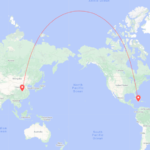
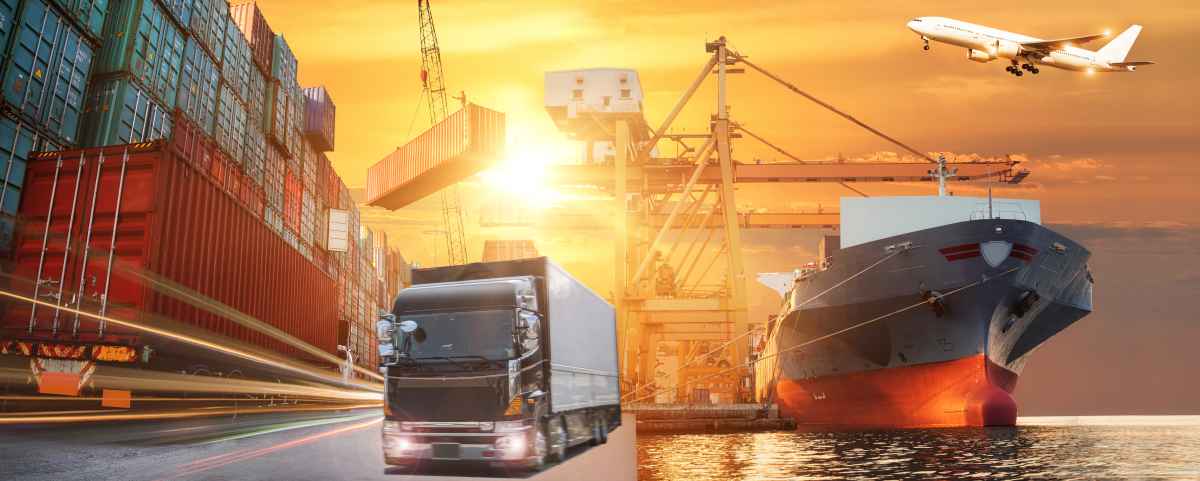
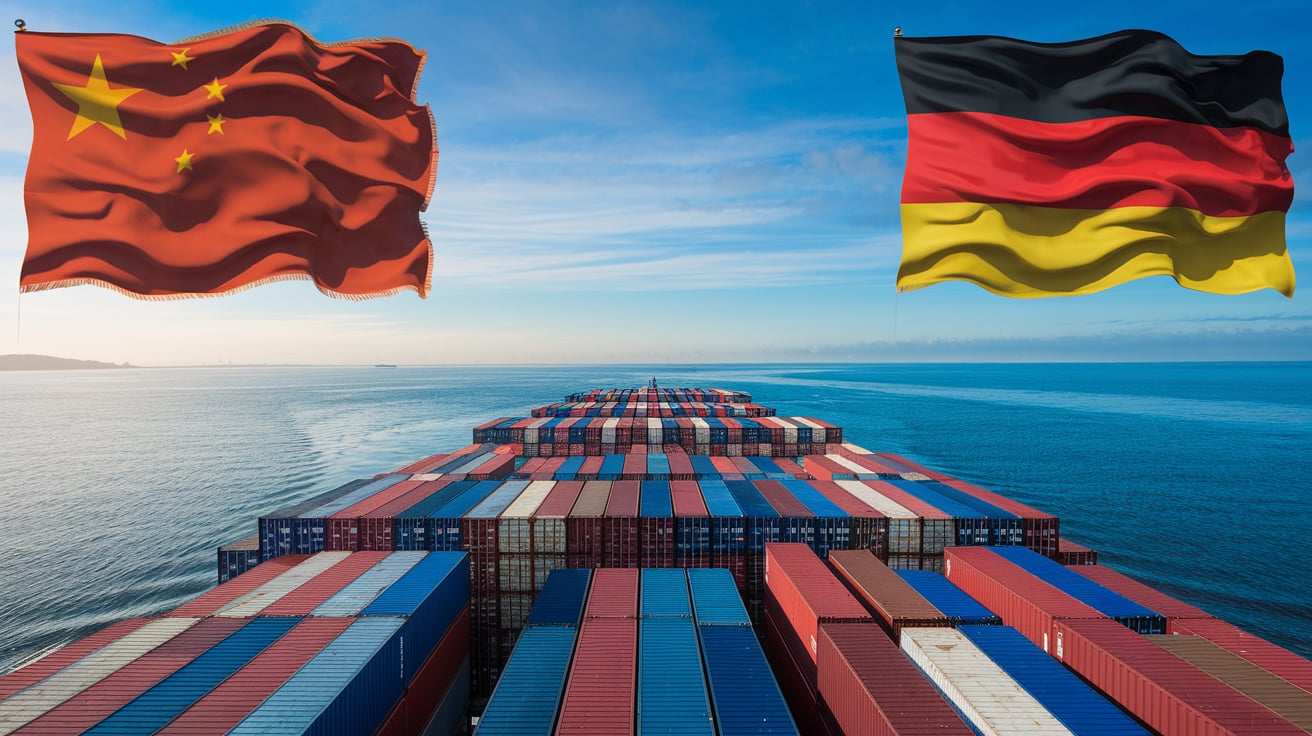
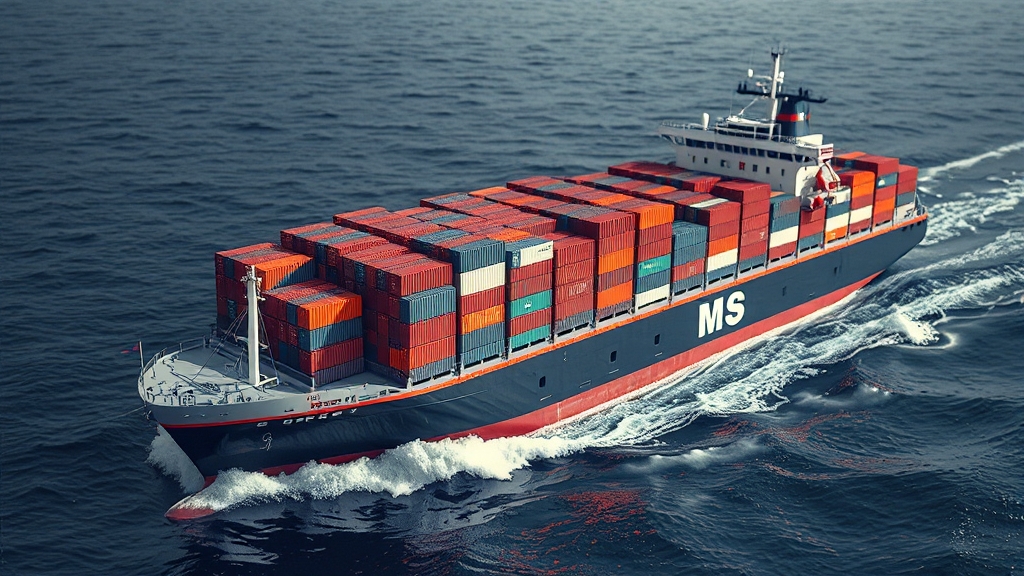
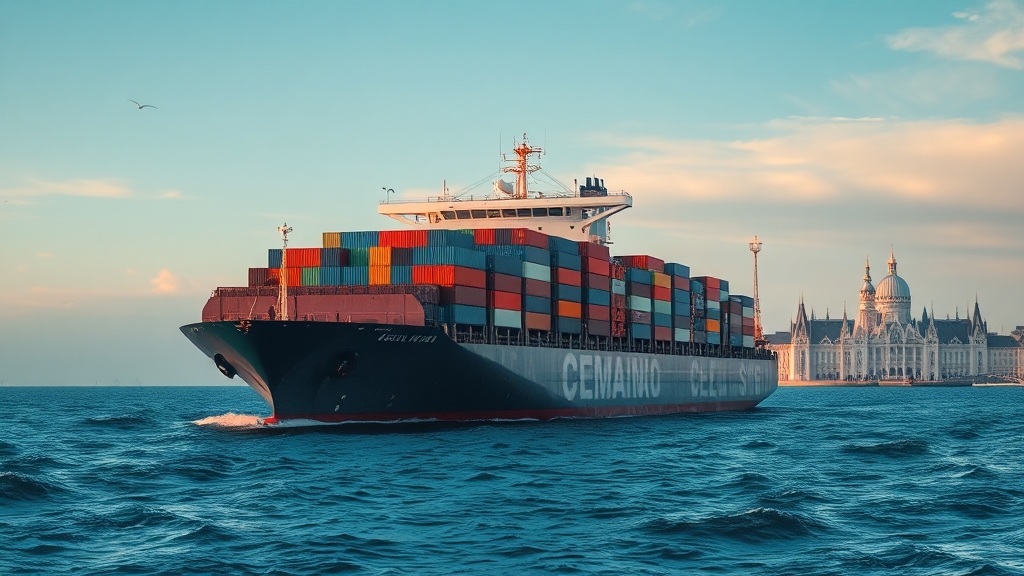
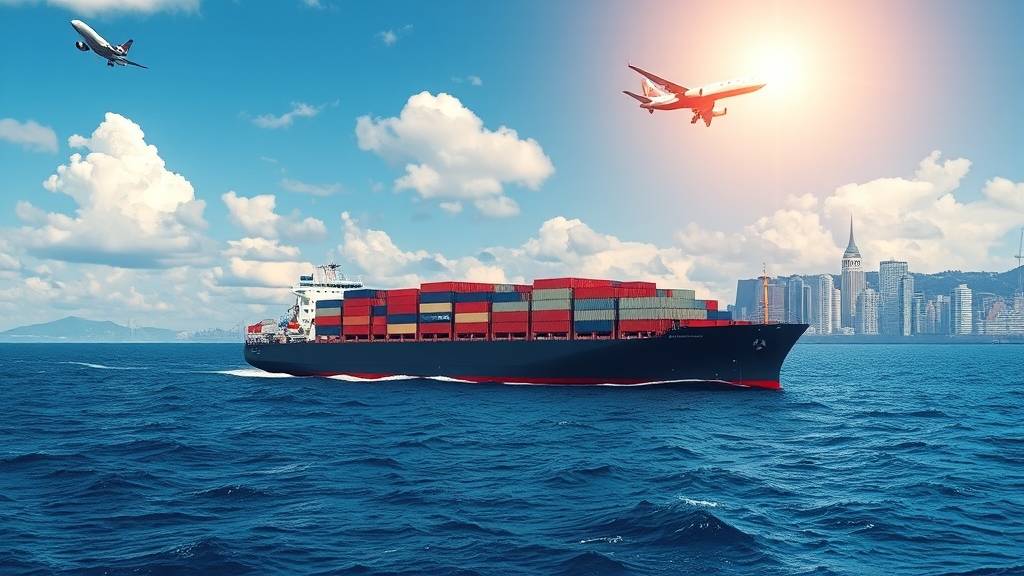





 Afrikaans
Afrikaans Shqip
Shqip አማርኛ
አማርኛ العربية
العربية Հայերեն
Հայերեն Azərbaycan dili
Azərbaycan dili Euskara
Euskara Беларуская мова
Беларуская мова বাংলা
বাংলা Bosanski
Bosanski Български
Български Català
Català Cebuano
Cebuano Chichewa
Chichewa 简体中文
简体中文 繁體中文
繁體中文 Corsu
Corsu Hrvatski
Hrvatski Čeština
Čeština Dansk
Dansk Nederlands
Nederlands English
English Esperanto
Esperanto Eesti
Eesti Filipino
Filipino Suomi
Suomi Français
Français Galego
Galego ქართული
ქართული Deutsch
Deutsch Ελληνικά
Ελληνικά Kreyol ayisyen
Kreyol ayisyen Harshen Hausa
Harshen Hausa Ōlelo Hawaiʻi
Ōlelo Hawaiʻi עִבְרִית
עִבְרִית हिन्दी
हिन्दी Hmong
Hmong Magyar
Magyar Íslenska
Íslenska Igbo
Igbo Bahasa Indonesia
Bahasa Indonesia Gaeilge
Gaeilge Italiano
Italiano 日本語
日本語 Basa Jawa
Basa Jawa ಕನ್ನಡ
ಕನ್ನಡ Қазақ тілі
Қазақ тілі ភាសាខ្មែរ
ភាសាខ្មែរ 한국어
한국어 كوردی
كوردی Кыргызча
Кыргызча ພາສາລາວ
ພາສາລາວ Latin
Latin Latviešu valoda
Latviešu valoda Lietuvių kalba
Lietuvių kalba Lëtzebuergesch
Lëtzebuergesch Македонски јазик
Македонски јазик Malagasy
Malagasy Bahasa Melayu
Bahasa Melayu മലയാളം
മലയാളം Maltese
Maltese Te Reo Māori
Te Reo Māori मराठी
मराठी Монгол
Монгол ဗမာစာ
ဗမာစာ नेपाली
नेपाली Norsk bokmål
Norsk bokmål پښتو
پښتو فارسی
فارسی Polski
Polski Português
Português ਪੰਜਾਬੀ
ਪੰਜਾਬੀ Română
Română Русский
Русский Samoan
Samoan Gàidhlig
Gàidhlig Српски језик
Српски језик Sesotho
Sesotho Shona
Shona سنڌي
سنڌي සිංහල
සිංහල Slovenčina
Slovenčina Slovenščina
Slovenščina Afsoomaali
Afsoomaali Español
Español Basa Sunda
Basa Sunda Kiswahili
Kiswahili Svenska
Svenska Тоҷикӣ
Тоҷикӣ தமிழ்
தமிழ் తెలుగు
తెలుగు ไทย
ไทย Türkçe
Türkçe Українська
Українська اردو
اردو O‘zbekcha
O‘zbekcha Tiếng Việt
Tiếng Việt Cymraeg
Cymraeg יידיש
יידיש Yorùbá
Yorùbá Zulu
Zulu